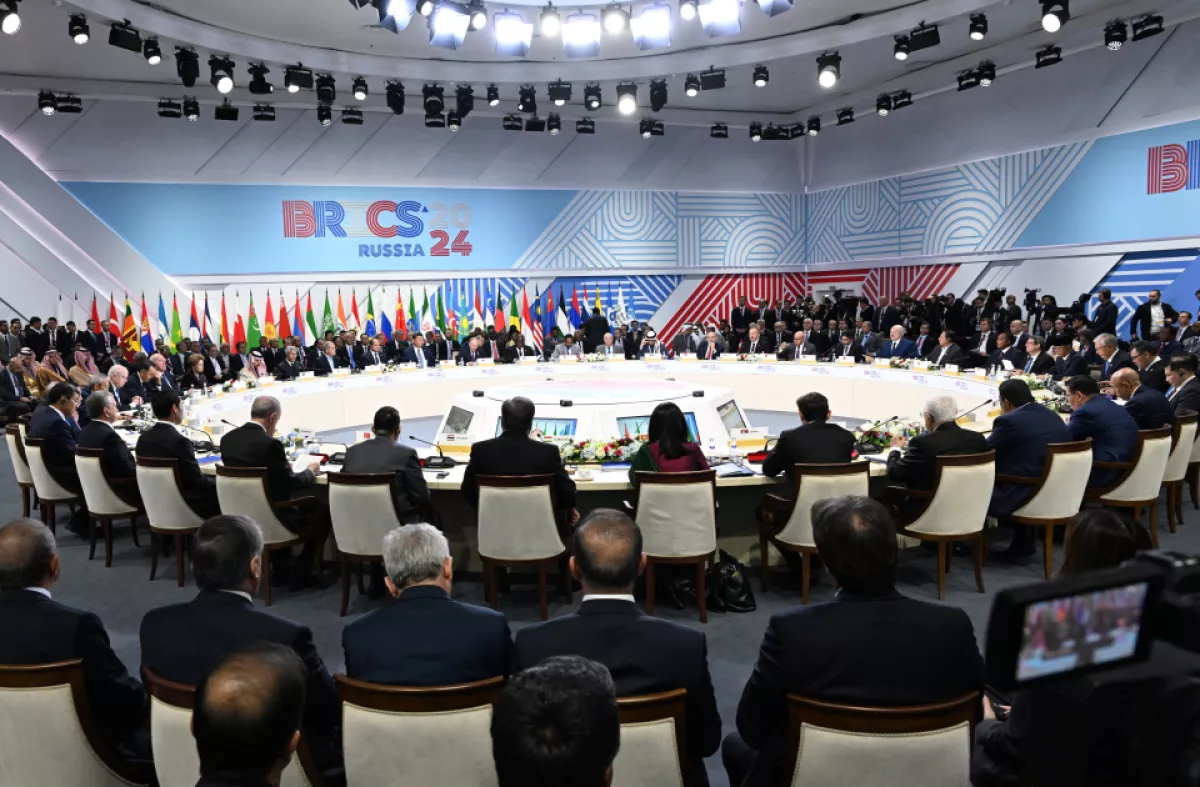BRICS Summit: Azerbaijan's vision for multilateral future Multivector diplomacy
On October 24, the XVI BRICS Summit concluded in Kazan, featuring the participation of Azerbaijani President Ilham Aliyev. His presence at the summit is particularly significant, as Azerbaijan has submitted an official application to become a full member of the organization. This move aligns seamlessly with Azerbaijan's long-standing strategy of pursuing a multivector foreign policy.
President Aliyev attended an official reception hosted by Russian President Vladimir Putin in honor of the event's guests, as well as the Outreach/BRICS+ session of the summit. In his address, Aliyev underscored Azerbaijan's commitment to the principle of multilateralism in international relations. He cited Azerbaijan's chairmanship of the Non-Aligned Movement as a prime example, showcasing the substantial progress the country has made in institutional development and its enhanced position within the global system of international relations.
“The experience of successful chairmanship of the Movement is now helping us as Chair of the Conference on Interaction and Confidence-Building Measures in Asia,” noted Aliyev.
The president further emphasized Azerbaijan’s pivotal role in the transportation corridors of Eurasia and the modern infrastructure that supports them: “Due to the sharp rise in cargo traffic through our territory, we are investing additional funds to enhance the capacity of these corridors.”
In concluding his remarks, Aliyev highlighted the unanimous choice of Azerbaijan by 200 countries as the host for COP29 as a clear testament to the respect and support for our policies: “We are already contributing to cooperation between the Global South and the Global North on climate issues, and we will strive to achieve mutual understanding on climate change, global security, the rule of international law, non-interference in each other's affairs, and mutual respect.”

Prior to his speech at the summit, the president held meetings on the sidelines of the event with several key figures, including Dilma Rousseff, President of the New Development Bank established by BRICS member states; Thongloun Sisoulith, President of the Lao People's Democratic Republic; Milorad Dodik, President of the Republic of Srpska of Bosnia and Herzegovina; and German Gref, President and Chairman of the Board of the Public Joint-Stock Company Sberbank of the Russian Federation.
Particular attention was drawn to the meeting between the official delegations of Azerbaijan and Armenia. The fact that such a meeting took place demonstrates that, despite all the challenges, both sides continue to seek a path toward peace.
As we can see, Azerbaijan is fully leveraging all international platforms to protect its national interests, enhance its geopolitical status, and secure the most favourable conditions for its safety.
This summit marks the first time the organization is convening in an expanded format, symbolizing a manifestation of the Global South amid attempts by the collective West to assert dominance. At the same time, the leaders of the BRICS member states emphasize that the activities of the organization are not directed against the West.
The idea of not being oriented against anyone is particularly relevant for Azerbaijan. Engaging Azerbaijan in BRICS activities allows the country to stay aligned with global trends in world politics. Situated at the crossroads of various centres of power and interests, Azerbaijan is obligated to pursue a balanced policy, taking advantage of different international order systems. Moreover, the nation is prepared to contribute to building a more just world order, as demonstrated by our chairmanship in the Non-Aligned Movement and our hosting of COP29.
Such a policy contributes to achieving a more equitable and lasting peace in the South Caucasus.








